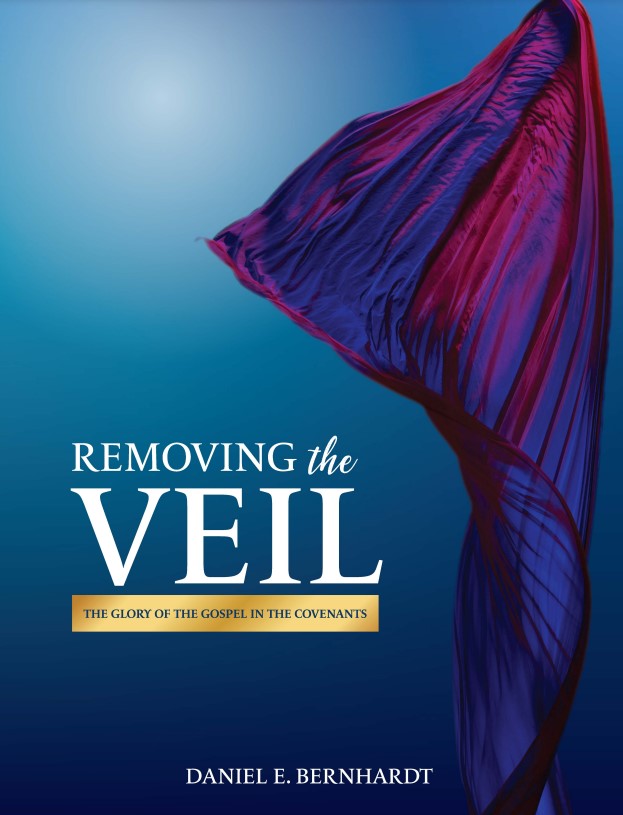Christ’s Administration of the Law of Moses
When the Pharisees brought the adulteress woman to Jesus for sentencing they believed they had him cornered.
Their pretended reverence veiled a deep-laid plot for His ruin. They had seized upon this opportunity to secure His condemnation, thinking that whatever decision He might make, they would find occasion to accuse Him. Should He acquit the woman, He might be charged with despising the law of Moses. Should He declare her worthy of death, He could be accused to the Romans as one who was assuming authority that belonged only to them. {DA 460.5}
The work of judgment was given to Jesus through this invitation:
John 8:5 Now Moses in the law commanded us, that such should be stoned: but what sayest thou?
It is certainly true that the Law of Moses indicates the adultery was punishable by death.
Lev 20:10 And the man that committeth adultery with another man's wife, even he that committeth adultery with his neighbour's wife, the adulterer and the adulteress shall surely be put to death.
The severity of this law has caused the majority of the Christian world to think that Jesus came to save us from the Law of Moses by nailing that law to the cross. And yet we find concerning this law
Moses of himself framed no law. Christ, the angel whom God had appointed to go before his chosen people, gave to Moses statutes and requirements necessary to a living religion and to govern the people of God. Christians commit a terrible mistake in calling this law severe and arbitrary, and then contrasting it with the gospel and mission of Christ in his ministry on earth, as though he were in opposition to the just precepts which they call the law of Moses. {RH, May 6, 1875 par. 12}
How is it possible that Christ gave laws to Moses in order that 1500 years later He would seek to overturn and destroy it? Is Christ divided against Himself. Such a kingdom cannot stand and Satan knows that in the foundational principles of the professed Christian world concerning the law, Christ is made to be divided against Himself.
In the woman being brought to Jesus we see the very framer of the Law of Moses showing us how He intended that law to be administered.
The first thing Jesus says to them puts a very serious dent in their plans.
John 8:7 So when they continued asking him, he lifted up himself, and said unto them, He that is without sin among you, let him first cast a stone at her.
Here we see the very law giver telling us the qualifications of those who are able to do the stoning. They must be without sin. How many of the punishments of the Old Testament could be carried out righteously if those executing the sentence had to be without sin? Is any man qualified to perform such a deed as this? All have sinned and fall short of the glory of God.
Apart from being hypocritical, why is it impossible for a sinner to execute another sinner by stoning them?
The condemning power of Satan would lead him to institute a theory of justice inconsistent with mercy. He claims to be officiating as the voice and power of God, claims that his decisions are justice, are pure and without fault. Thus he takes his position on the judgment seat and declares that his counsels are infallible. Here his merciless justice comes in, a counterfeit of justice, abhorrent to God. Letter 16a, 1892.
In the opening of the great controversy, Satan had declared that the law of God could not be obeyed, that justice was inconsistent with mercy, and that, should the law be broken, it would be impossible for the sinner to be pardoned. Every sin must meet its punishment, urged Satan; and if God should remit the punishment of sin, He would not be a God of truth and justice. DA 761
When our first parents ate the fruit and accepted the principles of Satan’s kingdom they accepted the mind of Satan in regard to law and justice. The justice system of Satan did not provide for any mercy. All sin must be punished. In the case of Satan, sin means anything that disagrees with his own thoughts. Therefore as human beings we have inherited this notion that all those who disagree with us must be punished without mercy according to the crime.
This is why it is impossible for a sinner to put another man to death from his own interpretation of the law because men will use the law to destroy those who disagree with them and this is exactly what the Pharisees were seeking to do to Jesus. They used the Law of Moses to try and destroy Christ. It is this very principle that Satan uses against God. He uses the Law of Moses in a manner to destroy our confidence in the loving character of our Father in heaven. How does he do this? Through his counterfeit system of justice that has no mercy.
What is the purpose of the law?
Gal 3:24 Wherefore the law was our schoolmaster to bring us unto Christ, that we might be justified by faith.
Rom 3:19 Now we know that what things soever the law saith, it saith to them who are under the law: that every mouth may be stopped, and all the world may become guilty before God.
Heb 7:19 For the law made nothing perfect, but the bringing in of a better hope
[did;]by the which we draw nigh unto God.
When the woman was brought to the feet of Jesus for sentencing, it had completed its work. It did what it was intended to do. What takes place next is what Jesus always intended to do for the sinner who felt the depth of their sinfulness.
John 8:10-11 When Jesus had lifted up himself, and saw none but the woman, he said unto her, Woman, where are those thine accusers? hath no man condemned thee? (11) She said, No man, Lord. And Jesus said unto her, Neither do I condemn thee: go, and sin no more.
The condemnation of sin through the law is vital that mercy might be given. For without the conviction of sin there is no need for grace; without the sentence of death there is no need for mercy. And so we read:
Joh 1:17 (NIV) For the law was given through Moses; grace and truth came through Jesus Christ.
Rom 5:20 Moreover the law entered, that the offence might abound. But where sin abounded, grace did much more abound:
The biblical principle of condemnation is not the same as human condemantion just as God's wrath is not the same as man's wrath. Human condemantion does not lead to mercy, human condemnation typically only leads to separation and scorn. But our Father is not like this. The Bible clearly speaks of a ministry of condemnation that is glorious.
2 Cor 3:9 For if the ministration of condemnation be glory, much more doth the ministration of righteousness exceed in glory.
God's ministry of condemnation is glorious because it leads to mercy, forgiveness and righteousness. He is not punitive in His condemnation but is always loving in this work.
When Jesus gave the instruction to Moses that those who commit adultery should be put to death He desired to bring to their minds the terrible results of engaging in such an act. For we read
James 1:15 Then when lust hath conceived, it bringeth forth sin: and sin, when it is finished, bringeth forth death.
It is sin that brings forth death. Sin is self-destructive. The instruction given in the law was done so to highlight the deadly nature of sin. Paul tells us that this ministration of death that causes men to see they are worthy of death is a glorious work.
2 Cor 3:7 But if the ministration of death, written and engraven in stones, was glorious,…
Once we accept the declaration of death; once we mourn for our sins under the convicting work of the Spirit then we are ready to receive in its fullness, the pardoning grace and mercy of God.
Jesus, the giver of the law to Moses, clearly reveals how He intended that law to be used. He intended to use it in such a way as to deliver mercy to the broken sinner.
She dared not lift her eyes to the Saviour's face, but silently awaited her doom. In astonishment she saw her accusers depart speechless and confounded; then those words of hope fell upon her ear, "Neither do I condemn thee: go, and sin no more." Her heart was melted, and she cast herself at the feet of Jesus, sobbing out her grateful love, and with bitter tears confessing her sins.
This was to her the beginning of a new life, a life of purity and peace, devoted to the service of God. In the uplifting of this fallen soul, Jesus performed a greater miracle than in healing the most grievous physical disease; He cured the spiritual malady which is unto death everlasting. This penitent woman became one of His most steadfast followers. With self-sacrificing love and devotion she repaid His forgiving mercy. {DA 462.2}
How wonderful is the Spirit through the law to bring conviction of sin in order that we might receive the pardoning mercy and love of God. The greater the condemnation we feel, the greater the pardon and mercy that we receive. For remember
Rom 5:20-21 Moreover the law entered, that the offence might abound. But where sin abounded, grace did much more abound: (21) That as sin hath reigned unto death, even so might grace reign through righteousness unto eternal life by Jesus Christ our Lord.
Do you want the Law to enter into your mind to cause your sinful condition to abound? The greater the condemnation, the much greater the grace for we read:
Luke 7:47 Wherefore I say unto thee, Her sins, which are many, are forgiven; for she loved much: but to whom little is forgiven, the same loveth little.
How sad that the men who seduced this woman into committing adultery could not also be brought to the feet of Jesus to receive pardon. The terrifying experience of the woman being exposed for her sin actually led to her redemption, yet the man who did this to her was not brought to the feet of Jesus in terror and it is very probable that he missed his opportunity for eternal life for he hid himself from the process of judgment that would have delivered him mercy.
Many people today say, we thank God that we do not live under the Old Testament with the rules for stoning people. Yet this statement is based on a wrong understanding of how Christ administered the law. God never desired to carry out any of the punishments written in the law of Moses but rather He desires that we realise the sinfulness of sin that we might receive mercy. We all need the deep conviction of sin through the law in order that we might receive the pardoning grace of Christ.
In consequence of continual transgression, the moral law was repeated in awful grandeur from Sinai. Christ gave to Moses religious precepts which were to govern the everyday life. These statutes were explicitly given to guard the ten commandments. They were not shadowy types to pass away with the death of Christ. They were to be binding upon man in every age as long as time should last. These commands were enforced by the power of the moral law, and they clearly and definitely explained that law. {RH, May 6, 1875 par. 10}
Thank the Lord for the work of Spirit through the law. Thank the Lord when we feel poor in Spirit as we look into the high standard of the law. If we want more grace then we need deeper and yet deeper conviction of sinfulness through the law.
God has given man a complete rule of life in his law. Obeyed, he shall live by it, through the merits of Christ. Transgressed, it has power to condemn. The law sends men to Christ, and Christ points them back to the law. RH Sep 27 1881.
This tells us that the ministration of death in our lives must continue until we are sealed. Then this work will vanish away as an old garment.
The Scriptures plainly show that the work of sanctification is progressive. When in conversion the sinner finds peace with God through the blood of the atonement, the Christian life has but just begun. Now he is to "go on unto perfection;" to grow up "unto the measure of the stature of the fullness of Christ." GC 471
So when we feel a deep conviction of sin through the law this is the work of the comforter.
John 16:7-8 Nevertheless I tell you the truth; It is expedient for you that I go away: for if I go not away, the Comforter will not come unto you; but if I depart, I will send him unto you. (8) And when he is come, he will reprove the world of sin, and of righteousness, and of judgment:
Deep conviction of sin is comforting when done by the Spirit of God. It then prepares us to be convicted of the righteousness of Christ. How sweet is this comfort!
So this is why it is so comforting when Jesus magnified the law and said
Matt 5:28 But I say unto you, That whosoever looketh on a woman to lust after her hath committed adultery with her already in his heart.
This is the work of the comforter. When the Spirit of God is working in a man’s heart when he reads this verse will feel that he is lost. If we live by Satan’s system of justice we will cry out with Cain – my punishment is greater than I can bear and curse God and die but if we know that God is ever merciful and abounding in goodness and truth then we will be comforted to know God forgives us when we confess to Him our sinfulness.
So when we point to the law of the Old Testament laws as a reason they are no longer applicable we reveal that be believe that the God of the Old Testament is a vengeful God who desired to punish and kill people. This was not the intention of giving the law. Yet sinful men infected with Satan’s ideas of justice have twisted the law of God to paint God as a murderous tyrant made in the image of Satan. May we be set free from this false view of God’s character.
So let us kneel with that woman caught in adultery and feel the terror of the law against us so that when we take hold of Jesus feet we can hear the words “neither do I condemn you go and sin no more” by the power of My Spirit.




